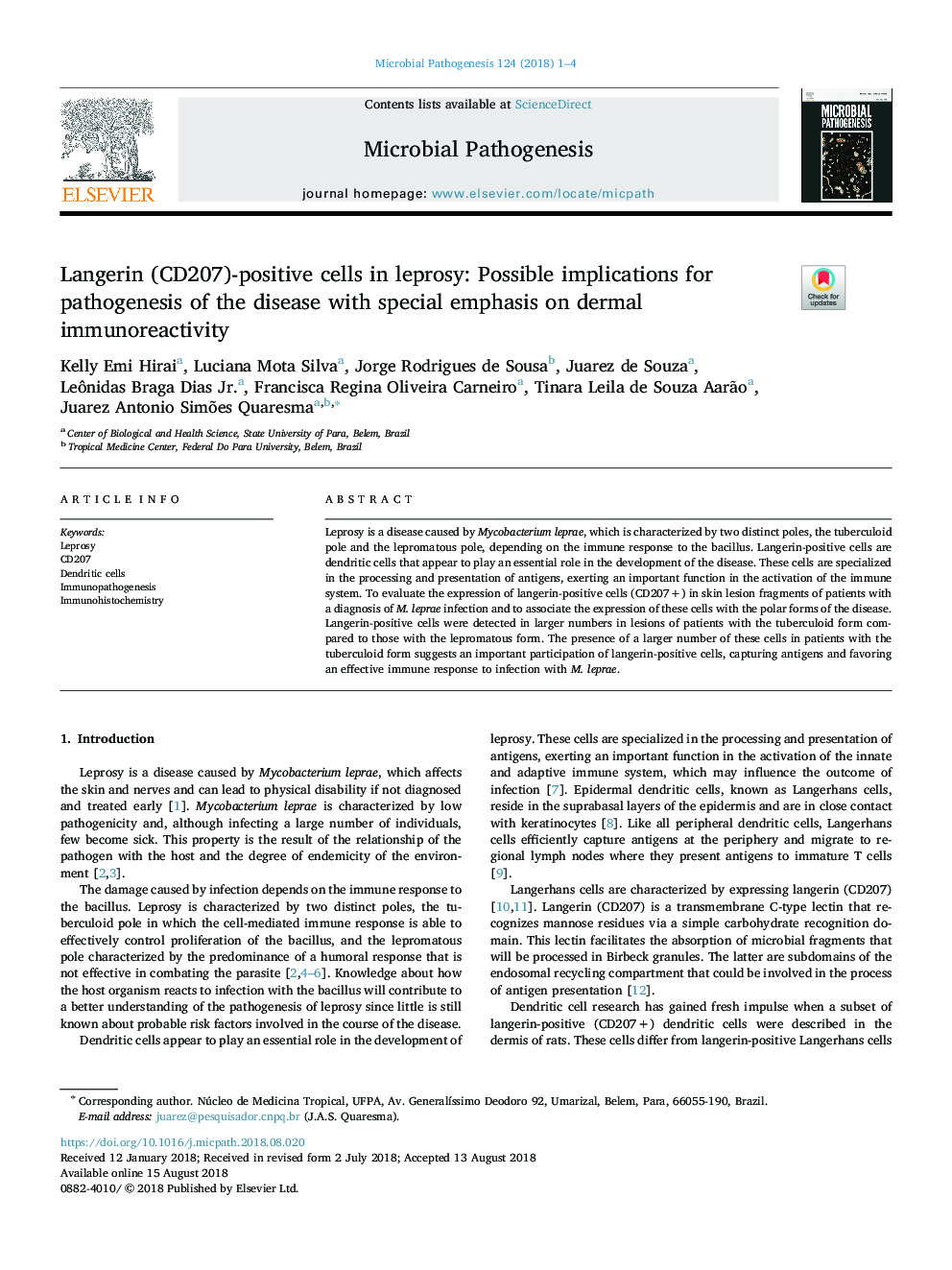| Article ID | Journal | Published Year | Pages | File Type |
|---|---|---|---|---|
| 8944993 | Microbial Pathogenesis | 2018 | 4 Pages |
Abstract
Leprosy is a disease caused by Mycobacterium leprae, which is characterized by two distinct poles, the tuberculoid pole and the lepromatous pole, depending on the immune response to the bacillus. Langerin-positive cells are dendritic cells that appear to play an essential role in the development of the disease. These cells are specialized in the processing and presentation of antigens, exerting an important function in the activation of the immune system. To evaluate the expression of langerin-positive cells (CD207+) in skin lesion fragments of patients with a diagnosis of M. leprae infection and to associate the expression of these cells with the polar forms of the disease. Langerin-positive cells were detected in larger numbers in lesions of patients with the tuberculoid form compared to those with the lepromatous form. The presence of a larger number of these cells in patients with the tuberculoid form suggests an important participation of langerin-positive cells, capturing antigens and favoring an effective immune response to infection with M. leprae.
Related Topics
Life Sciences
Immunology and Microbiology
Microbiology
Authors
Kelly Emi Hirai, Luciana Mota Silva, Jorge Rodrigues de Sousa, Juarez de Souza, Leônidas Braga Jr., Francisca Regina Oliveira Carneiro, Tinara Leila de Souza Aarão, Juarez Antonio Simões Quaresma,
